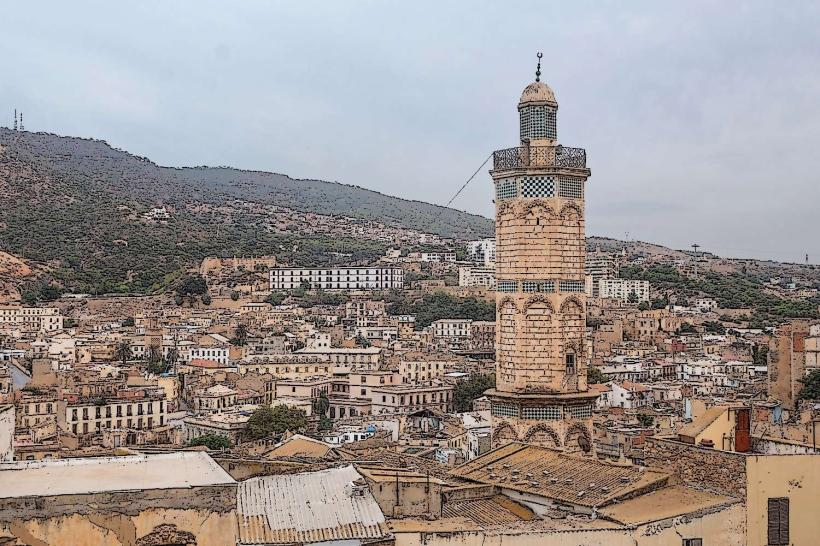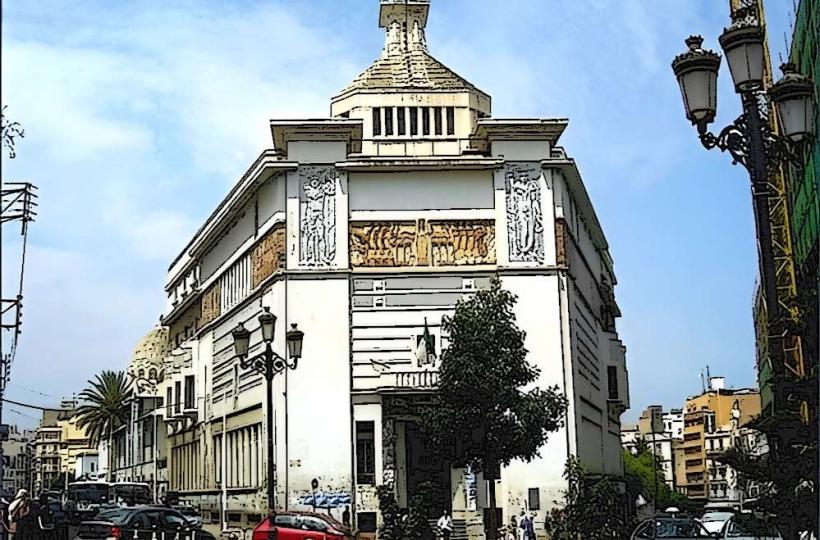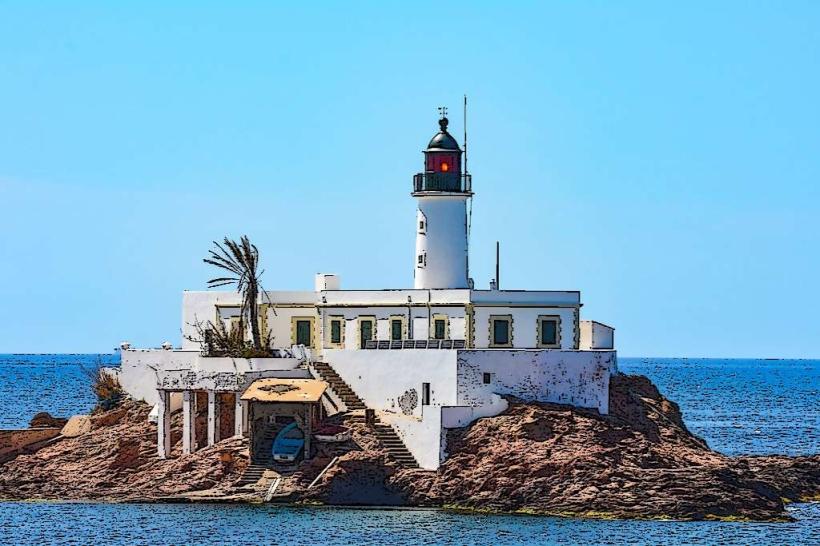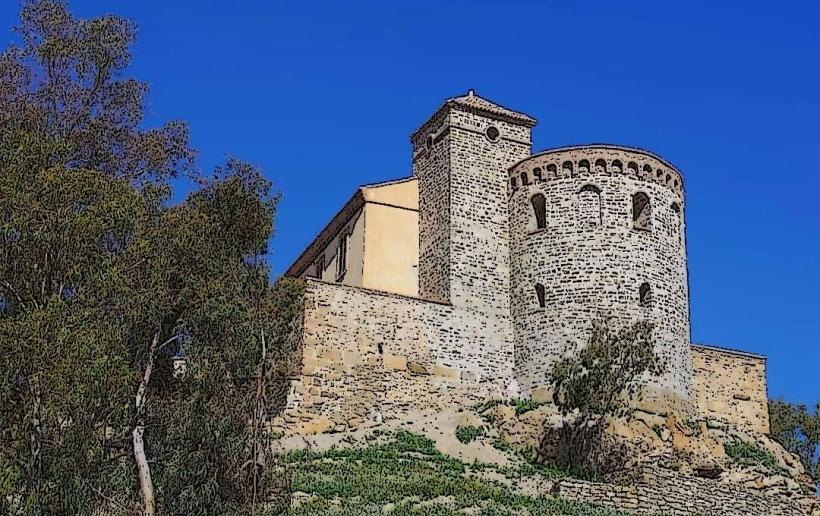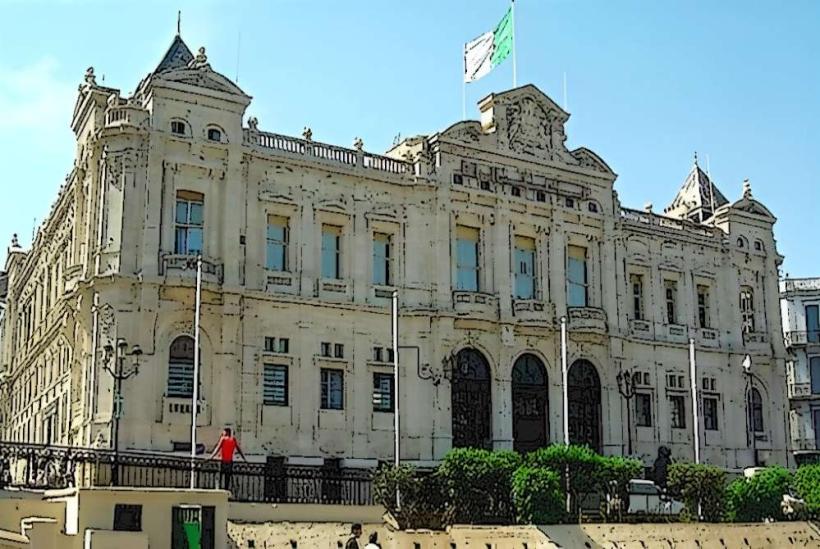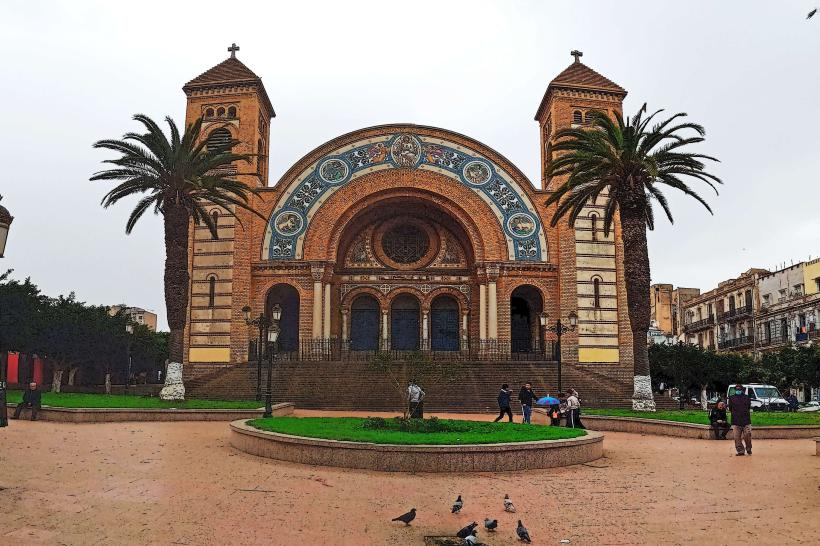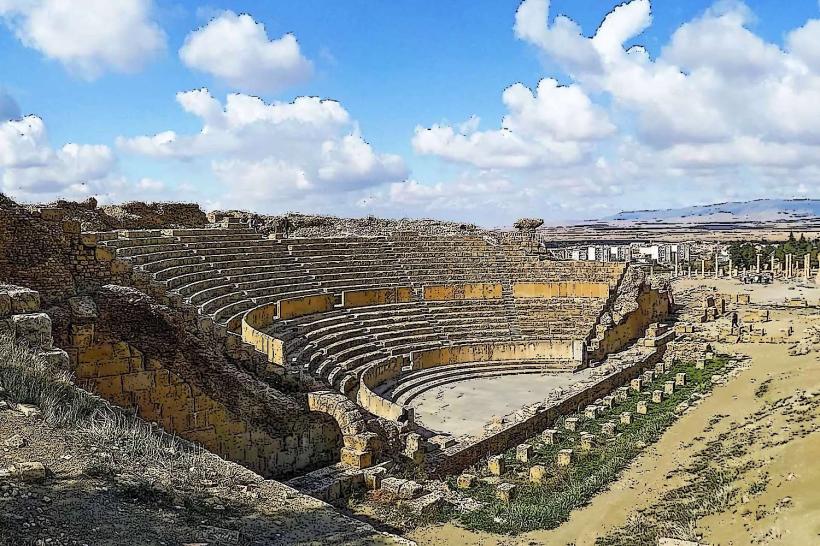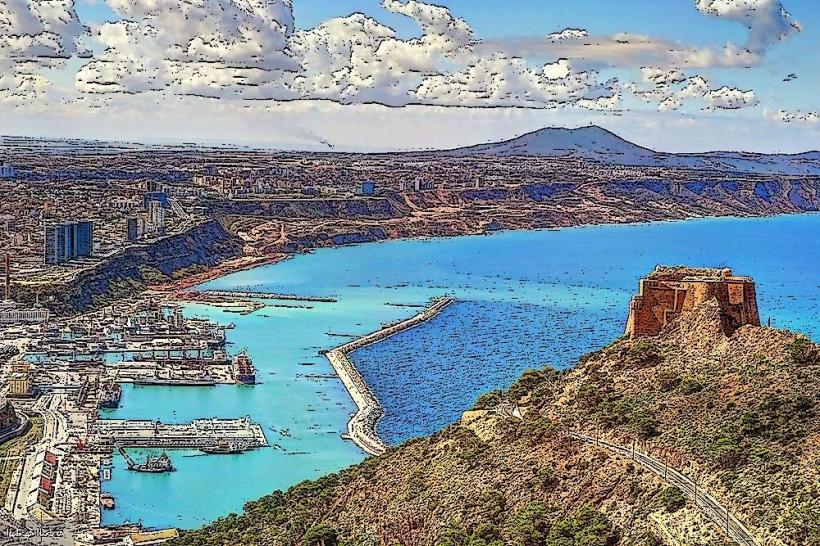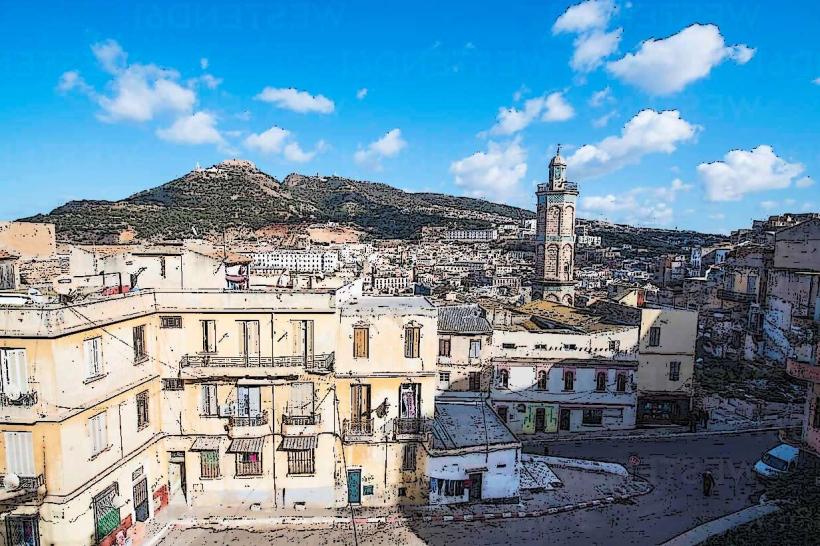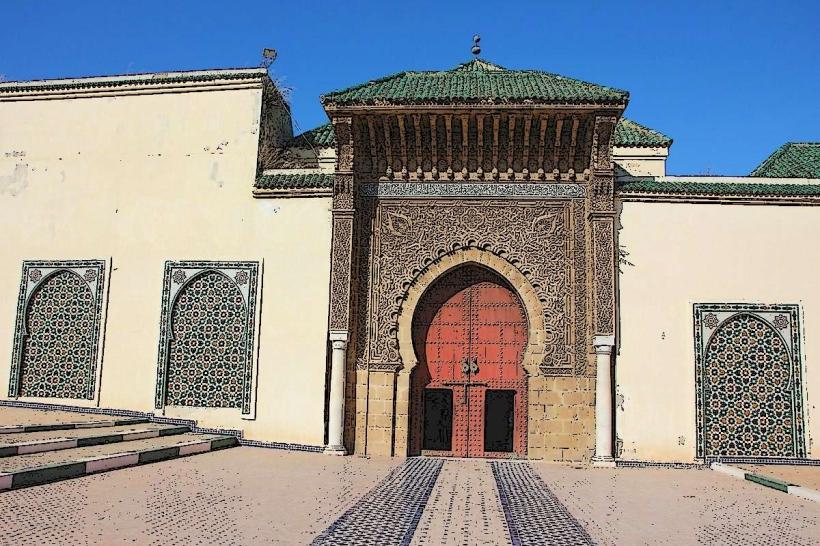Information
Landmark: Le Cadran SolaireCity: Oran
Country: Algeria
Continent: Africa
Le Cadran Solaire, Oran, Algeria, Africa
Le Cadran Solaire is a sundial located in the city of Oran, Algeria. It functions as a public timepiece and a historical marker.
Visual Characteristics
The sundial consists of a large, circular stone base supporting a central gnomon, a vertical rod that casts a shadow. The base is approximately 3 meters in diameter and is constructed from local sandstone. The gnomon is made of weathered bronze. The hour markers are etched directly into the stone surface of the base. The overall structure stands about 2.5 meters tall.
Location & Access Logistics
Le Cadran Solaire is situated in Place du 1er Novembre 1954, the main square in Oran. It is centrally located within the city. Access is direct from the square, which is pedestrian-friendly. Parking is available in underground garages surrounding the square, such as the Parking Souk El-Attarine, approximately 100 meters away. Public transport, including numerous bus lines (e.g., lines 5, 12, 18) and taxis, serve Place du 1er Novembre 1954.
Historical & Ecological Origin
The sundial was constructed in 1931 by the French colonial administration as part of urban development projects in Oran. Its original purpose was to serve as a functional timepiece and a decorative element for the public square. It is a man-made structure with no specific ecological origin.
Key Highlights & Activities
Observe the shadow cast by the gnomon to determine the local solar time. Note the precision of the etched hour markers. The structure serves as a point of orientation within the square.
Infrastructure & Amenities
Restrooms are available in nearby commercial establishments and public facilities within Place du 1er Novembre 1954. Shade is provided by surrounding buildings and trees in the square. Cell phone signal (4G/5G) is generally strong in this central urban area. Food vendors and cafes are abundant in the immediate vicinity of the square.
Best Time to Visit
For accurate time reading, visit during daylight hours when the sun is visible. Mid-morning (9:00 AM - 11:00 AM) and mid-afternoon (2:00 PM - 4:00 PM) offer clear shadow definition. The best months for weather are typically April through October, with minimal rainfall and comfortable temperatures.
Facts & Legends
A local anecdote suggests that during the summer solstice, the shadow of the gnomon precisely aligns with a specific paving stone at noon, a detail not officially documented but frequently mentioned by long-time residents.
Nearby Landmarks
- Grande Mosquée d'Oran (0.3km West)
- Fort de Santa Cruz (2.5km Southwest)
- Musée National Zabana (0.4km North)
- Théâtre Régional d'Oran (0.6km Northwest)
- Port d'Oran (1.2km North)


